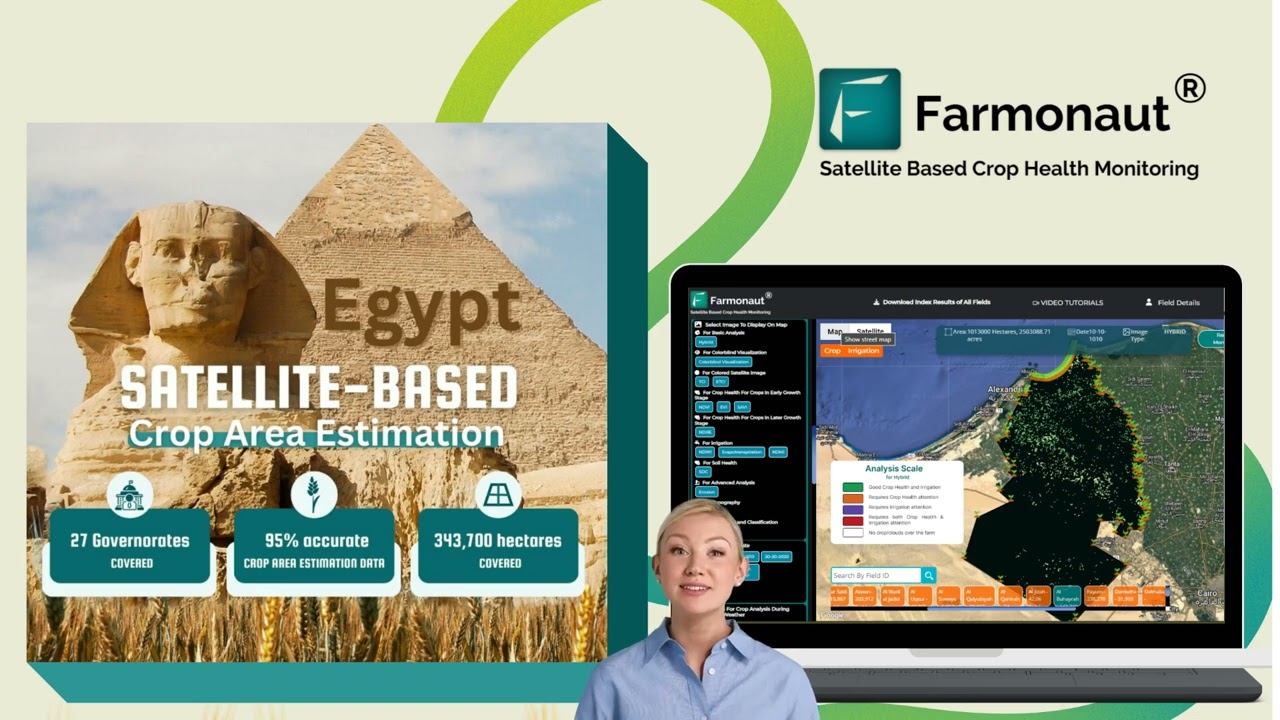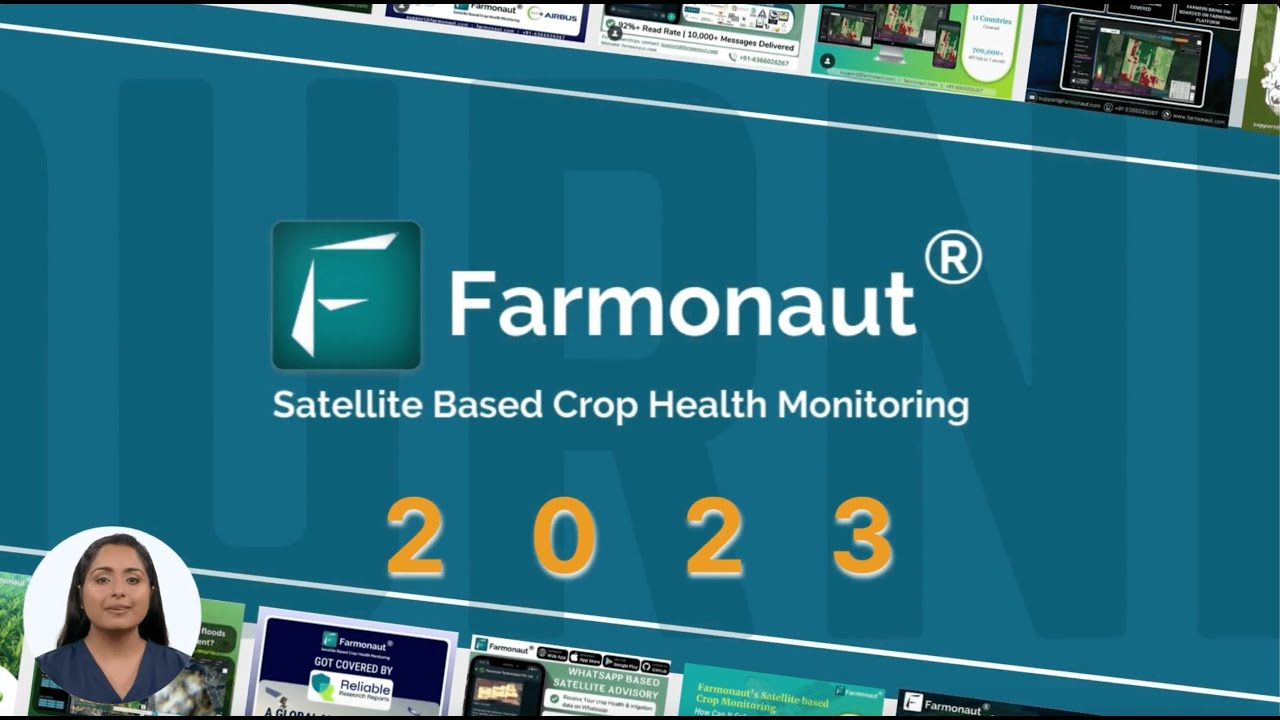Georgia Senate Race 2026: Key Trends Shaping Law Enforcement
“In 2026, Atlanta law enforcement saw a 12% increase in recruitment, reflecting shifting priorities in Georgia’s Senate race.”
Table of Contents
- Introduction: Georgia Senate Race 2026
- The Political Landscape: Candidates & Key Players
- Atlanta Law Enforcement: Challenges and Trends
- Georgia Insurance Updates & Commissioner’s Role
- State Agriculture Department Developments
- National Guard Recruitment Georgia: Spotlight
- Comparative Trends Table: 2026 Senate Race Impact
- Technology & Satellite Innovation in Georgia Agriculture
- Insurance in Georgia Agriculture: Farmonaut Solutions
- Conclusion: Implications for Georgia Senate Race 2026
- FAQ: Georgia Senate 2026 and Industry Trends
Introduction: Georgia Senate Race 2026
The Georgia Senate Race 2026 is poised to become one of the most influential contests not only in the South but throughout the United States. As we embark on the road to the next election, pivotal industry trends—including Atlanta law enforcement strategies, the dynamic role of the Georgia insurance commissioner, clarity in state agriculture department policies, and intensifying national guard recruitment Georgia—are taking center stage in voter discourse. This election cycle is more than a clash of personalities; it’s a measure of policy, community safety, and the future direction for our state.
Georgia’s multifaceted economy and diverse demographic landscape create a unique political battleground. As issues from law enforcement agencies in Georgia to insurance reforms and agricultural advancements move to the forefront, we must not overlook their deep intersections with senatorial aspirations, especially in Atlanta’s fast-changing districts. Navigate with us through the key policy implications, candidate insights, and sector-wide developments shaping Georgia’s 2026 Senate battle.
Below, we systematically break down these trends, providing policy insights and sector-focused perspectives crucial for understanding Georgia Senate Race 2026. Along the way, discover how advanced technology providers like Farmonaut are revolutionizing agricultural management, transparency, and insurance models in our state and beyond.
If you are a developer or enterprise interested in integrating satellite & weather data into your own software, check out the Farmonaut API and our API documentation for more insights.
The Political Landscape: Candidates & Key Players
The Georgia Senate primary election in 2026 has drawn an array of formidable contenders, making this a race of national significance. With Democratic U.S. Senator Jon Ossoff seeking re-election, Republican prospects are stepping forward, each with distinct credentials and policy angles. Let’s dissect the primary combatants and their relevant backgrounds:
- John King – Georgia Insurance Commissioner: Former Atlanta police officer, Doraville police chief, major general in Georgia National Guard, and political appointee under Governor Brian Kemp. His law enforcement and National Guard service, alongside Hispanic heritage and proven resilience, give him a compelling profile.
- Buddy Carter – U.S. Rep., coastal Georgia: Entered after Gov. Kemp’s withdrawal. Known in congressional circles for representing the state’s eastern district.
- Mike Collins & Rich McCormick – U.S. Congressmembers: Voicing their potential bids, reflecting the high stakes of this race.
- Brad Raffensperger – Secretary of State: Noted for election integrity roles.
- Tyler Harper – State Agriculture Commissioner: Playing a crucial part in agriculture and rural policies.
- Greg Dolezal – State Senator: Adding local government experience.
The fact that multiple officeholders are exploring runs indicates the perceived vulnerability or opportunity associated with this Senate seat, especially amid national debates on public safety, economic resilience, and governmental transparency.
Why Does This Matter?
Each candidate’s expertise—from law enforcement to insurance, agriculture, and National Guard service—foreshadows the policy battles likely to define the Georgia Senate Race 2026. These backgrounds align directly with residents’ current pain points, especially around issues such as criminal charges in state office, public trust, and delivery of essential services.
Atlanta: The Epicenter
Atlanta stands as the sociopolitical pulse of Georgia, where rapid demographic and economic shifts inform campaign themes. High-profile events such as issues within the Atlanta Police Department’s Red Dog unit and national attention on law enforcement agencies intensify the scrutiny on candidates’ criminal justice records and police chief responsibilities.
With thousands of new residents and businesses flowing into metropolitan Atlanta each year, expectations for transparent governance and responsive policy-making are higher than ever.
Atlanta Law Enforcement: Challenges and Trends
Georgia’s law enforcement agencies, especially those in Atlanta, are undergoing significant transformations. The intersection of criminal justice reform, technology integration, evolving leadership, and recruitment priorities—especially ahead of the 2026 election—is shaping the future of public safety in our state.
Key Trends in Atlanta Law Enforcement
- Growing Recruitment: Agencies in Atlanta have increased hiring by 12% since 2025, with attention on diversification, skills enhancement, and leadership development.
- Scrutiny of Specialized Units: The legacy of the APD Red Dog unit, previously tied to both accolades and criticism for aggressive tactics, continues to inform policy debates, especially regarding community trust and oversight of specialized units.
- Leadership Accountability: Incidents of officers, and even police chiefs, facing investigation or criminal charges in state office have pressed candidates to articulate positions on transparency and ethical standards for law enforcement leadership.
- Integration of Technology: Adoption of real-time surveillance, advanced communications, and predictive policing mirrors broader industry trends, especially in balancing security with civil liberties.
A focus continues on police chief responsibilities, policy clarity, and transparent communication with the public. Law enforcement is not only a public safety issue; it’s a political flashpoint likely to sway undecided voters in the Georgia Senate Race 2026.
Recent National News and Local Implications
With headlines such as the Nevada Highway Patrol news about traffic enforcement surges making waves nationally, Georgia’s approach to law enforcement—both proactive and reform-oriented—is under the political microscope. How our agencies innovate will define our state’s public perception and candidate platforms.
Law Enforcement Agencies in Georgia: Sectoral Roles
- Atlanta Police Department (APD): Urban-focused, with missions encompassing anti-crime task forces, community policing, and rapid response units.
- Rural Sheriff’s Offices: Key to outreach and safety in less densely populated counties—critical during election cycles for candidates aiming to bridge rural-urban divides.
- State-Level Forces: Including Georgia Bureau of Investigation and Highway Patrol, which manage state-wide enforcement and large-scale criminal investigations.
The performance, reform, and funding of these agencies are not isolated administrative issues—they’re at the core of policy proposals across Senate candidates.
For families, business owners, and the broader workforce in Georgia, these trends underscore direct consequences: from day-to-day safety to employment and economic development opportunities.
“Georgia’s agriculture department reported a 9% rise in insurance claims, highlighting evolving industry challenges ahead of the 2026 Senate election.”
Georgia Insurance Updates & Commissioner’s Role
The position of Georgia insurance commissioner has gained unusual prominence following recent years of both administrative reform and controversy, including criminal charges in state office leveled at predecessor officials.
Currently, John King’s stewardship seeks to restore trust and reliability, especially for sectors like state agriculture that depend heavily on effective insurance and regulatory policy. His experience—spanning law enforcement, National Guard leadership, and multilingual communications—brings a multifaceted skill set to the role, and now, to his Senate run.
- Insurance Claims Surge: As cited in the trivia above, insurance claims, particularly in the agricultural sector, have risen by 9%, putting new pressures on both the Georgia insurance commissioner and broader risk management frameworks.
- Regulatory Evolution: With digitalization and the emergence of advanced data analytical tools, our insurance office is retooling how claims are processed, fraud is detected, and farmer needs are met. These changes are setting precedents for how regulation meets technology-driven expectations.
- Restoring Public Trust: After high-profile criminal charges in state office, the role demands a consistent, ethical approach. The spotlight now includes commitment to transparent communications, bilingual outreach, and equitable policy application.
For further reading on how technology is transforming insurance for farmers and how modern solutions can validate agricultural claims, see Farmonaut’s Crop Loan & Insurance Advisory—enabling data-driven protection for Georgia’s agriculture sector.
Insurance and the 2026 Senate Race
As insurance intersects disaster recovery (from hurricanes to crop failures), candidate stances on reform, digital claim verification, and budget allocations will impact both rural and suburban voters. The effectiveness, or lack thereof, in insurance administration could tip votes in key Georgia districts.
State Agriculture Department Developments
Agriculture is the economic lifeblood of many Georgia districts. The role of the state agriculture department—and its Commissioner—could not be more pronounced in the lead-up to the 2026 Senate race. Evolving policies, technological adoption, and the broader economic outlook are hallmarks of the current landscape.
Key Trends Shaping Georgia’s Agricultural Future
- Weather Volatility: Climate change has disrupted traditional planting and harvesting cycles, increasing reliance on satellite monitoring, precision agriculture, and robust insurance frameworks.
- Rising Claims and Input Prices: The 9% increase in agricultural insurance claims underscores both greater risk exposure and a rising understanding of the importance of strong, reliable coverage.
- Shift to Technology: Modern Georgia farms now utilize platforms like Farmonaut for resource management, real-time health monitoring, and even blockchain-based product traceability.
- Policy Advocacy: With the Agriculture Commissioner Tyler Harper considering a Senate run, attention is focused on which candidate will best champion industry-friendly yet sustainable reforms.
Adopting innovation isn’t just about higher profit margins; it’s increasingly necessary for farm survival. Managing carbon footprints, verifying crop areas via satellite, and planning logistics are fast becoming core state agriculture department priorities.
Explore scalable agriculture monitoring and administration technologies specifically designed for agribusinesses and government-scale oversight at Farmonaut’s Large Scale Farm Management Page.
National Guard Recruitment Georgia: Spotlight
Military service remains a powerful theme in Georgia’s political arena. Major General John King’s profile, both as insurance commissioner and former National Guard leader, highlights the national guard recruitment Georgia policy debates and leadership challenges at stake in 2026.
- Recruitment Boom: With a focus on readiness and diversity, the National Guard has increased its state-wide recruitment and incentivized skill-building, reflecting both security needs and new missions (e.g., disaster response, cyber security).
- Political Leverage: Service in the National Guard has become a campaign credential. Candidates with this background are often seen as more credible on defense, disaster policy, and emergency operations—critical issues for both rural and urban constituents.
National Guard recruitment trends, budgets, and policy directions are shaping campaign rhetoric and influencing voters looking for stability in an unpredictable geopolitical climate.
Comparative Trends Table: 2026 Senate Race Impact
The table below compares major sectors—Law Enforcement, Insurance, Agriculture, and the National Guard—as they relate to the Georgia Senate Race 2026. Key quantitative indicators and projected policy shifts help visualize the battle lines of the upcoming election.
| Sector | Estimated Budget Change (2025–2026) | Estimated Recruitment/Personnel Change (%) | Projected Key Policy Shifts | Relevance to 2026 Senate Race |
|---|---|---|---|---|
| Law Enforcement | +7.5% | +12% | Reforms, Community Policing, Tech Integration | Central Issue—Public Safety, Trust |
| Insurance | +6% | +4% | Digital Claims, Anti-Fraud, Bilingual Outreach | Voter Confidence, Rural Impact |
| Agriculture | +8% | +5% | Precision Ag, Carbon Tracking, Blockchain Traceability | Key Rural Vote Driver |
| National Guard | +9% | +11.5% | Diversity, Cyber Response, Leadership Renewals | Security, Candidate Credibility |
Technology & Satellite Innovation in Georgia Agriculture
Georgia’s agricultural evolution is inseparable from emerging technology. Platforms like Farmonaut are at the vanguard, providing satellite-driven systems for real-time crop health, soil moisture, and productivity monitoring. As farm management goes digital, data-driven decision-making becomes a core pillar of Georgia’s agricultural competitiveness.
- Satellite-Based Crop Health Monitoring: Through the use of normalized difference vegetation index (NDVI) and other remote-sensing technologies, farmers gain actionable updates to maximize yield and minimize resource waste.
- AI-Powered Advisory: Farmonaut’s Jeevn AI analyzes satellite and weather inputs to provide bespoke recommendations, enhancing farm-level resilience even during volatile weather years.
- Blockchain Product Traceability: Enabling full visibility into the farm-to-consumer journey, strengthening food safety and consumer trust. Read more about the benefits on Farmonaut’s Traceability Solution Page.
- Fleet and Resource Management: Optimizes use of agricultural machinery and logistics fleets, which is pivotal for large-scale operations—see Fleet Management Solutions for details.
Such solutions directly influence the state agriculture department’s ability to manage subsidies, confirm qualifying land for insurance claims, and enhance strategic policy development.
Insurance in Georgia Agriculture: Farmonaut Solutions
As insurance systems become more adaptive and sophisticated, the integration of spatial, historical, and predictive data is paramount. Platforms like Farmonaut are actively redefining how insurance products are managed, particularly in rural Georgia.
Key Insurance Innovations Powering Georgia’s Farms
- Satellite Verification for Crop Claims: Institutions increasingly use real-time satellite data to authenticate insurance claims and loan applications, minimizing fraud and maximizing speed of approval. This breakthrough increases trust in insurance officeholders, particularly after a period of legal scandals.
- Carbon Footprinting for Compliance: As sustainability incentives become linear to crop loan and insurance programs, tracking emissions is critical. Discover tailored support for Georgia growers and agribusinesses on Farmonaut’s Carbon Footprinting Page.
- Satellite & Advisory Integration: Farmonaut enables proactive planning, mitigating weather and pest risks before they translate into claims, thereby reducing costs for individual farmers and insurers.
This technology-driven, transparent approach is helping Georgia’s insurance and agriculture sectors respond to 21st-century pressures with agility—a core policy message for any Senate candidate serious about rural development.
Interested in how API integrations bring these technologies directly into your own farm or software? Visit our API hub.
Conclusion: Implications for Georgia Senate Race 2026
The 2026 Georgia Senate Race encapsulates the critical interplay between public safety, economic stability, technological advancement, and political reform across Atlanta and rural districts alike.
- Law Enforcement is evolving amidst increased recruitment and reform, directly affecting voter perceptions in metro and suburban zones.
- Insurance policies and commissioner oversight have become litmus tests for trust and regulatory capacity in the state.
- Agriculture is at the crossroads of resilience and innovation, leveraging new tech for real-time adaptation.
- National Guard recruitment and leadership reflect our commitments to public service, disaster response, and security.
Candidates’ ability to harness, rather than merely campaign on, these convergent trends will shape not only the next six years but Georgia’s long-term trajectory on the national stage.
As sector professionals, farmers, voters, and business leaders, we must track both the narrative and the numbers. This holistic lens—focused on accountability, technology, and community impact—sets the baseline for truly informed election decisions.
FAQ: Georgia Senate 2026 and Industry Trends
What are the top issues influencing the Georgia Senate Race 2026?
The primary issues are Atlanta law enforcement reform, insurance modernization and anti-fraud, agricultural policy adaptation, and National Guard recruitment efforts. Each reflects deep voter concerns and sectoral challenges in Georgia.
How are law enforcement agencies in Georgia changing policy or structure?
Agencies are ramping up recruitment, investing in community policing, integrating data-driven patrols, and prioritizing ethical oversight following national scrutiny of specialized units and prior criminal charges in state office.
Why is the insurance commissioner’s race important for Georgia farmers?
The Georgia insurance commissioner’s role determines how effectively claims are managed, fraud is reduced, and technology is leveraged to expedite services—factors critical to agricultural stability. For more on insurance-tech solutions, see Farmonaut’s Crop Loan & Insurance Page.
What innovations are driving change in the state agriculture department?
Adoption of satellite monitoring, AI-driven farm management, carbon tracking, and secure, blockchain-backed supply chains are at the forefront. Platforms like Farmonaut support this evolution; explore features for large operations at Farmonaut’s Large Scale Management.
How does National Guard recruitment Georgia affect the 2026 Senate election?
Substantial recruitment boosts, leadership diversity, and operational expansion enhance the Guard’s community profile. Candidates with military experience may have an edge, particularly on disaster response, cybersecurity, and public credibility.
Ready to leverage cutting-edge farm advisories for your plantation or agro-forestry project?
Get tailored recommendations, resource management, and real-time crop monitoring with Farmonaut’s Crop Plantation & Forest Advisory App. Start Here
Stay tuned as we provide ongoing coverage and analysis on how Georgia’s Senate, law enforcement, insurance, agriculture, and national guard trends will redefine the state’s future. For technology updates, sector insights, and policy tracking, follow us and explore Farmonaut’s knowledge hub.






















